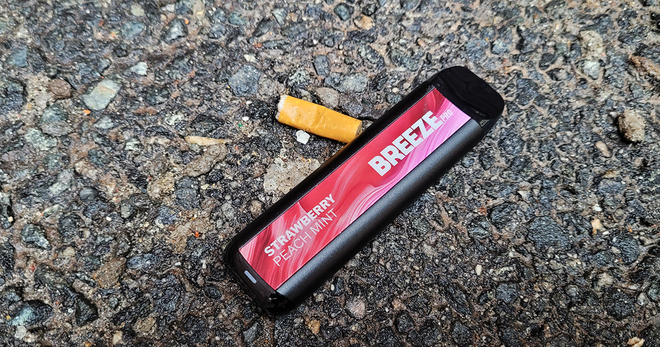Policies to reduce cigarette litter have strong support
Nearly three-quarters (72.4%) of U.S. adults supported adding a $0.75 litter fee on cigarette packs, indicating strong support for policies designed to reduce environmental waste created by cigarettes. The study published in Tobacco Control also found that when adults are aware of the environmental hazards of filtered cigarettes, they are more likely to support policies designed to reduce cigarette waste.
Most people unaware that cigarette filters are made of plastic
What are cigarette filters made of?
Cigarette butts are the most frequently littered item in U.S. beaches and waterways and second most littered item globally. Almost all cigarettes sold in the U.S. include filters, which are made of plastic that doesn’t biodegrade easily, making cigarettes a significant source of hazardous waste. Researchers asked a sample of nearly 3,000 U.S. adults between the ages of 18-64 about their knowledge of cigarette filters and support for policies designed to reduce cigarette-related waste.
They found that most survey respondents (71%) did not know cigarette filters were made of plastic, regardless of smoking status. Among this group, adults believed that filters were made instead of only cotton (45.3%) or paper (22.7%). One fifth of adults didn’t know that cigarette filters aren’t biodegradable.
Awareness of cigarette’s environmental impact tied to higher support for littering policies
What effect does cigarette litter have on the environment?
Nearly three-quarters of respondents (72.4%) supported adding a $0.75 fee per pack to pay for cleaning up cigarette litter, a finding that is “promising for public policy change,” the authors write.
Most respondents (90%) believed cigarette butts are harmful to the environment, a belief that was associated with 2X more support for a litter fee. Similarly, those who knew that filters are not biodegradable had nearly 1.5X higher odds of supporting a litter fee. The authors write that high support for litter fees can be leveraged to establish local and state-level littering fees.
“Comprehensive efforts are needed to educate the public about the impact of cigarette filters to build support for effective tobacco product waste policy,” the authors write.
The study also found that cigarette filters mislead consumers about smoking harms, and that increased knowledge of what cigarette filters do was associated with increased support for banning filtered cigarettes.
More in harmful effects of tobacco
Want support quitting? Join EX Program
By clicking JOIN, you agree to the Terms, Text Message Terms and Privacy Policy.
Msg&Data rates may apply; msgs are automated.


